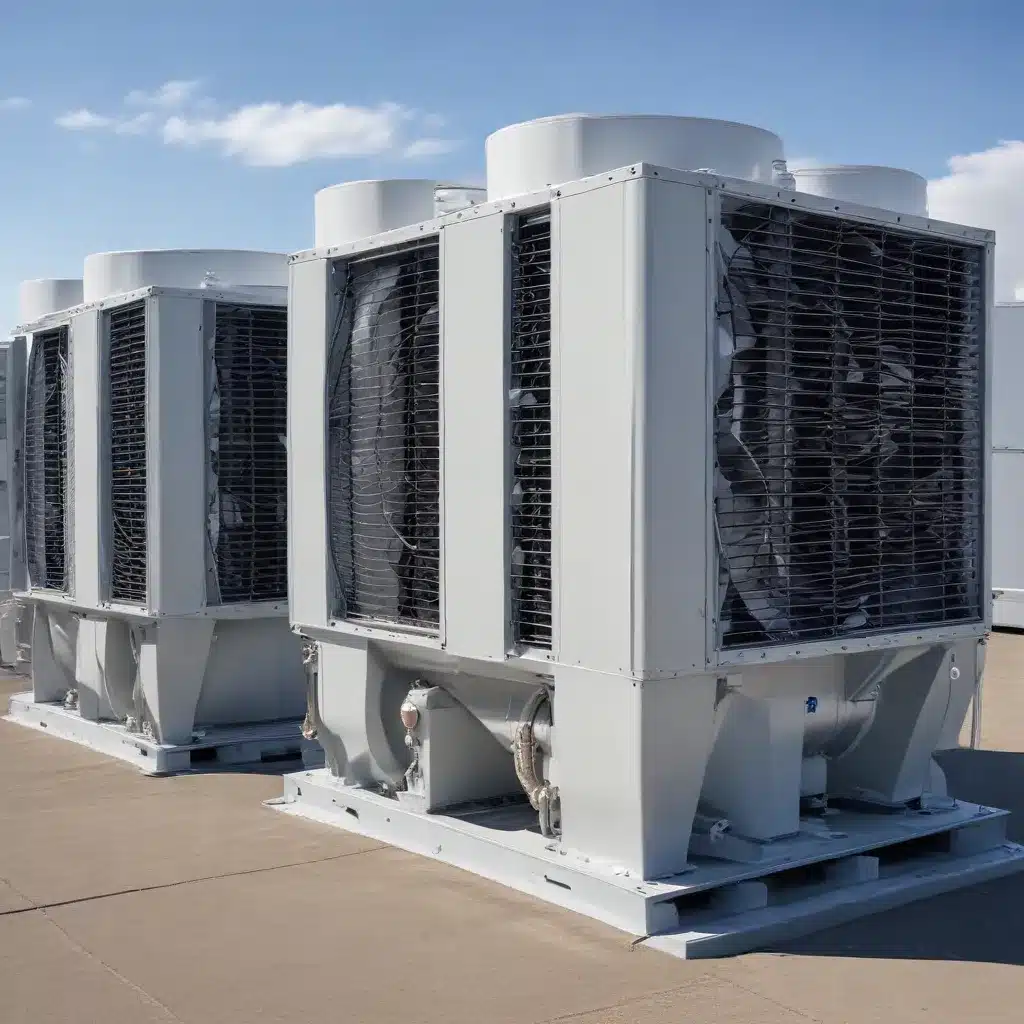
The Evolving Landscape of Industrial Cooling
In the relentless pursuit of industrial efficiency and productivity, the management of heat has emerged as a critical challenge. As manufacturing processes become more complex and energy-intensive, the demand for innovative, sustainable cooling solutions has never been more pressing. Enter the transformative power of air-cooled heat exchangers (ACHEs) – a game-changing technology that is revolutionizing the industrial cooling landscape.
At the heart of this revolution lies the unwavering commitment to environmental responsibility and energy efficiency. Traditional cooling systems, such as water-based towers, have long dominated the industrial landscape, but their high water consumption and energy demands have made them increasingly unsustainable. Air-cooled heat exchangers, on the other hand, offer a cutting-edge alternative that not only reduces environmental impact but also delivers tangible cost savings and operational advantages.
The Rise of Air-Cooled Heat Exchangers
Air-cooled heat exchangers have emerged as the preferred choice for a wide range of industrial applications, from power generation and manufacturing to data centers and commercial facilities. These innovative systems harness the power of air as the primary cooling medium, eliminating the need for water and significantly reducing energy consumption.
One of the key benefits of ACHEs is their inherent versatility. These heat exchangers can be customized to meet the specific cooling requirements of various industrial processes, whether it’s dissipating heat from machinery, maintaining optimal temperatures in production environments, or supporting the cooling demands of cutting-edge technologies like data centers.
Moreover, air-cooled heat exchangers offer a distinct advantage in terms of maintenance and reliability. Unlike their water-based counterparts, which are susceptible to scaling, corrosion, and fouling, ACHEs require minimal upkeep, ensuring consistent performance and extended equipment lifespan. This translates to reduced operational costs and enhanced productivity for industrial facilities.
Optimizing Performance and Efficiency
The journey towards sustainable industrial cooling is not just about embracing new technologies; it’s also about refining and optimizing the performance of existing systems. Air-cooled heat exchangers have undergone a remarkable evolution, with innovative design features and engineering advancements that have significantly improved their efficiency and environmental impact.
One such advancement is the integration of advanced materials and coatings. By utilizing corrosion-resistant alloys and specialized surface treatments, air-cooled heat exchangers can now withstand the harsh industrial environments while maintaining optimal heat transfer capabilities. This not only extends the lifespan of the equipment but also reduces the need for frequent maintenance and replacement, further enhancing the overall sustainability of the system.
Additionally, the integration of smart monitoring and control systems has revolutionized the way industrial facilities manage their cooling operations. Real-time data analysis, combined with predictive maintenance algorithms, enables operators to optimize energy consumption, detect potential issues early, and proactively maintain their air-cooled heat exchangers, ensuring peak performance and reliability.
Tackling Industry-Specific Challenges
While the benefits of air-cooled heat exchangers are universal, each industrial sector faces unique challenges that require tailored solutions. The website’s homepage serves as a valuable resource for exploring the diverse applications and specialized considerations for ACHEs across various industries.
In the power generation sector, for example, air-cooled heat exchangers play a crucial role in maintaining the efficiency and safety of operations. These systems are designed to withstand the harsh environments and high-temperature demands of power plants, ensuring reliable cooling for critical components and processes.
Similarly, in the data center industry, the rising power consumption and heat generation of advanced computing technologies have driven the adoption of innovative air-cooled solutions. By leveraging the latest advancements in air-cooled heat exchanger design, data center operators can now achieve optimal cooling performance while significantly reducing their environmental footprint.
Embracing Sustainability: A Holistic Approach
The transition towards sustainable industrial cooling is not just about technology; it’s about a holistic approach that encompasses environmental responsibility, operational efficiency, and long-term cost savings. Air-cooled heat exchangers are at the forefront of this transformation, offering a comprehensive solution that addresses the evolving needs of modern industrial facilities.
Beyond the immediate benefits of reduced water usage and energy consumption, air-cooled heat exchangers also contribute to the broader sustainability goals of industrial operations. By minimizing the carbon footprint and environmental impact of cooling systems, these innovative technologies support the industry’s broader commitment to sustainability, aligning with the growing global emphasis on green and eco-friendly practices.
Moreover, the cost-saving advantages of air-cooled heat exchangers extend beyond energy expenses. By reducing maintenance requirements, optimizing equipment lifespan, and minimizing the need for water treatment and disposal, these systems deliver tangible financial benefits that contribute to the overall profitability and competitiveness of industrial enterprises.
Conclusion: A Future Powered by Air-Cooled Innovation
As the industrial landscape continues to evolve, the demand for efficient, sustainable, and reliable cooling solutions has never been more critical. Air-cooled heat exchangers have emerged as the transformative answer, disrupting traditional cooling methods and paving the way for a more environmentally conscious and cost-effective future.
Through innovative design, advanced materials, and intelligent control systems, air-cooled heat exchangers are redefining the boundaries of industrial cooling. By optimizing performance, enhancing reliability, and minimizing environmental impact, these cutting-edge technologies are poised to play a pivotal role in shaping the future of industrial operations.
As the global community increasingly prioritizes sustainability and environmental stewardship, the adoption of air-cooled heat exchangers stands as a testament to the power of innovation in driving positive change. This transformative technology not only addresses the pressing cooling challenges faced by industrial facilities but also serves as a beacon of hope, illuminating a path towards a more sustainable and efficient industrial landscape.

